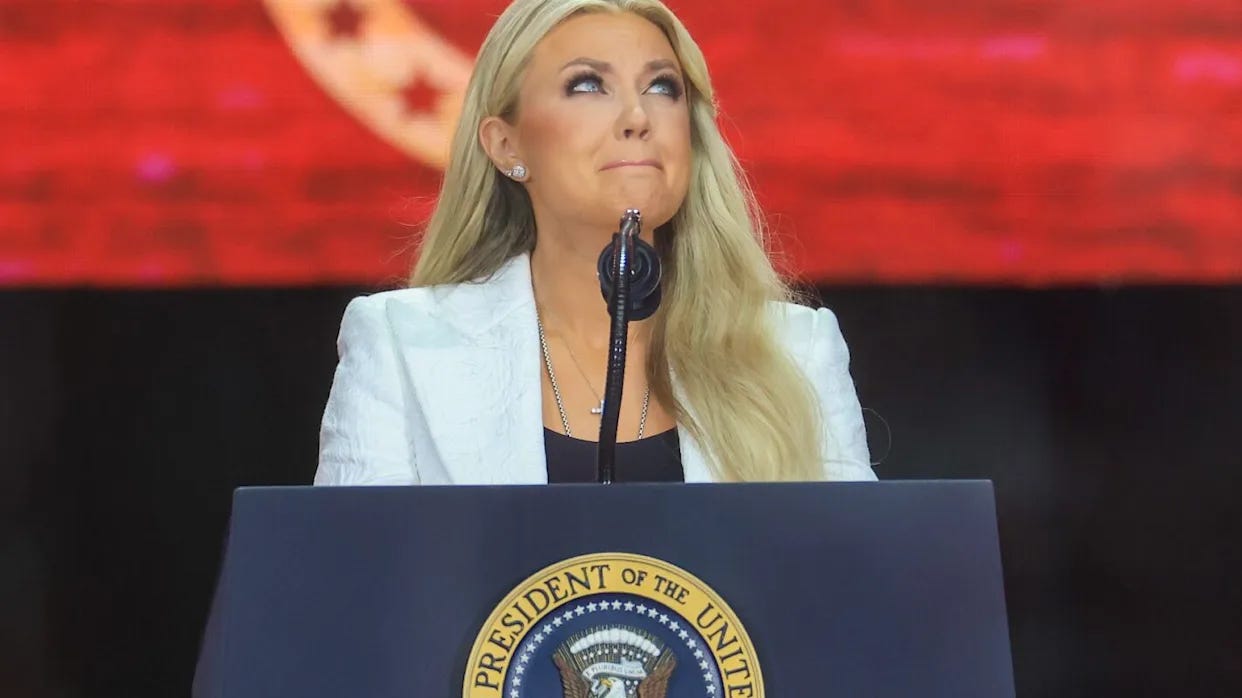To Forgive is Divine
On Erika Kirk and the meaning of forgiveness
I have not been able to stop thinking about Erika Kirk’s memorial speech last Sunday, and I am evidently not alone. In a service studded with big speeches from big names, it’s the one we’re still going to be talking about weeks and months from now, and with good reason.
There were so many beautiful things about this speech, even beyond the singular moment of forgiveness everyone has been marveling at. Among other things, it was an achingly intimate portrait of a marriage. Describing herself as Charlie’s “vault,” Erika gave us a glimpse of the husband and father he was becoming—a husband who couldn’t wait to come home from work, constantly asked how he could serve her better, and in so asking inspired her to serve him better. Not because he demanded it, but because he earned it.
That vision of self-giving love, sexual wholeness, and fidelity is a vision that Charlie Kirk loved young people too much to keep to himself. Erika described his longing to save “the lost boys of the West” — lost boys “like the one who took his life.”
A difficult conversation needs to be had about the depth and depravity of that lostness. Samuel James has opened up that conversation with a good piece at First Things. The more I reflect, the more I’m moved to conclude that Kirk’s murder was an act of intense envy. Envy cloaked in self-righteous moralizing about “hate,” but transparent to anyone with eyes to see.
What is the Christian to do when touched by such evil? As Erika searched her soul for the answer to this question, she looked to the example of Christ on the cross: “Forgive them, for they know not what they do.” And she chose to imitate that example, publicly. Then her face crumpled in tears, and the crowd rose to give her a standing ovation.
This spectacle has already inspired others to imitate Erika’s example. The actor Tim Allen posted that for decades, he has struggled to forgive the drunk driver who killed his father when Tim was only a boy. Compounding the trauma, Tim was in the car himself. After watching Erika’s speech, he was able, finally, to let his anger go. Another man posted a TikTok video saying he was stirred to do the same for a man who killed his brother in a drunken brawl. (Impossibly, someone then left a comment on the video that allowed them to meet and reconcile in person.)
These stories are deeply moving. At the same time, those killings were different in kind from the cold-blooded murder Erika chose to forgive. The shocking breadth of that generosity has yielded profoundly polarized reactions. Christians continue to applaud her, but the “post-Christian right” Ross Douthat tried to warn us about has made it clear that they are very unhappy about this “weak,” “suicidal” gesture. This, they declare, is how Western Civilization dies. Never mind that Western Civilization began on the very hill to which Erika Kirk has lifted up her eyes.
Keep reading with a 7-day free trial
Subscribe to Further Up to keep reading this post and get 7 days of free access to the full post archives.


